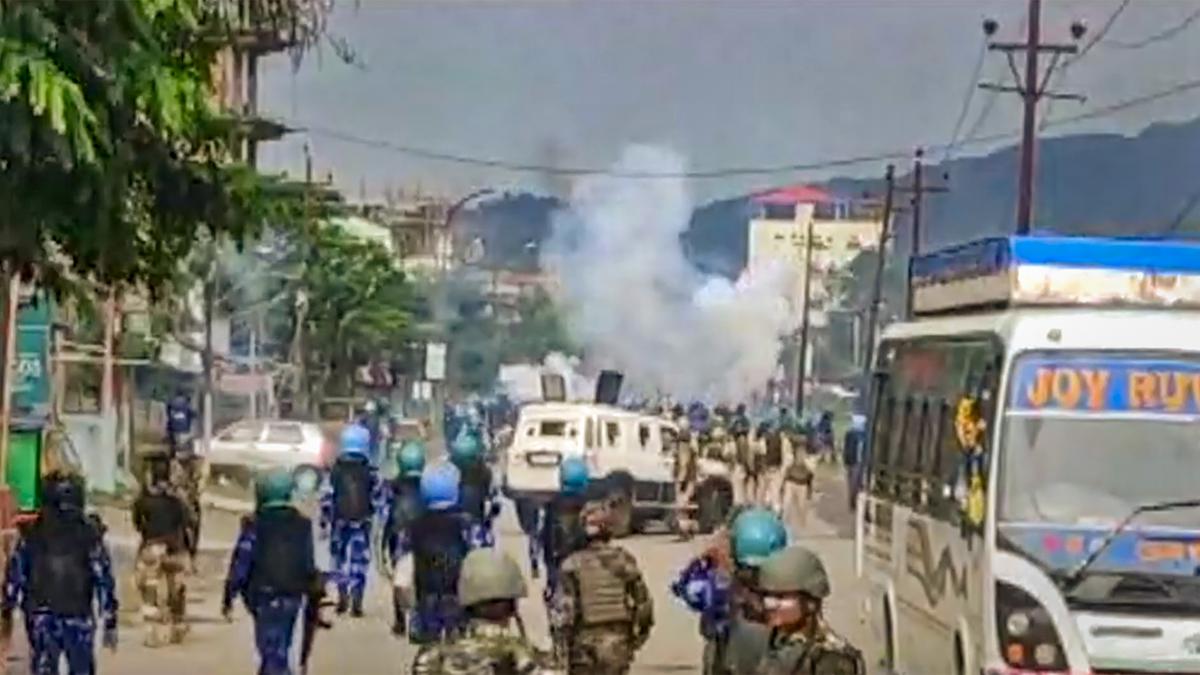
Pleas for restoring internet in Manipur to be heard in chambers: Manipur HC
The Hindu
The Manipur High Court on July 6 directed that it will hear a batch of petitions seeking the restoration of internet access in Manipur in chambers, just hours after the Supreme Court refrained from intervening in a separate plea challenging the internet restrictions in the State.Manipur
The Manipur High Court on July 6 directed that it will hear a batch of petitions seeking the restoration of internet access in Manipur in chambers, just hours after the Supreme Court refrained from intervening in a separate plea challenging the internet restrictions in the State. The High Court scheduled the in-chamber hearing for July 7.
While an expert panel constituted by the court asked for one more week to submit its report, representatives of internet service providers on the panel told the court it was not feasible to block virtual private networks (VPNs) in a bid to restore limited internet in the State.
A Bench of Acting Chief Justice M.V. Muralidharan and Justice Ahanthem Bimol Singh was hearing the batch of petitions seeking internet access on July 6, though the case was originally listed before a Bench of Justice A. Bimol Singh and A. Guneshwar Sharma.
Earlier in the day, the Supreme Court refrained from intervening in a separate petition challenging the “mechanical and repeated shutdown” of internet services in Manipur, noting that a Division Bench of the Manipur High Court was already hearing the issue and had constituted an expert committee on June 27 as well.
A three-judge Bench headed by Chief Justice of India D.Y. Chandrachud said that the Supreme Court Collegium has recommended a new Chief Justice for the Manipur High Court and that the judge would be in the saddle very soon. Delhi High Court judge, Justice Siddharth Mridul, was proposed by the Supreme Court Collegium for appointment as Manipur Chief Justice on July 5.
Chief Justice Chandrachud said that it would not be proper for the Supreme Court to intervene when the Division Bench is actively examining the issue of the internet ban and has even formed a committee in the process.
At the last hearing before the High Court, the Division Bench had notified the formation of a 12-member expert committee to explore the possibilities of restoring internet access with a block on social media websites and a block on virtual private network (VPN) services as well. The committee had been directed to submit its report on July 6, but submitted that one more week was needed to compile a detailed report.

“Writing, in general, is a very solitary process,” says Yauvanika Chopra, Associate Director at The New India Foundation (NIF), which, earlier this year, announced the 12th edition of its NIF Book Fellowships for research and scholarship about Indian history after Independence. While authors, in general, are built for it, it can still get very lonely, says Chopra, pointing out that the fellowship’s community support is as valuable as the monetary benefits it offers. “There is a solid community of NIF fellows, trustees, language experts, jury members, all of whom are incredibly competent,” she says. “They really help make authors feel supported from manuscript to publication, so you never feel like you’re struggling through isolation.”

Several principals of government and private schools in Delhi on Tuesday said the Directorate of Education (DoE) circular from a day earlier, directing schools to conduct classes in ‘hybrid’ mode, had caused confusion regarding day-to-day operations as they did not know how many students would return to school from Wednesday and how would teachers instruct in two modes — online and in person — at once. The DoE circular on Monday had also stated that the option to “exercise online mode of education, wherever available, shall vest with the students and their guardians”. Several schoolteachers also expressed confusion regarding the DoE order. A government schoolteacher said he was unsure of how to cope with the resumption of physical classes, given that the order directing government offices to ensure that 50% of the employees work from home is still in place. On Monday, the Commission for Air Quality Management in the National Capital Region and Adjoining Areas (CAQM) had, on the orders of the Supreme Court, directed schools in Delhi-NCR to shift classes to the hybrid mode, following which the DoE had issued the circular. The court had urged the Centre’s pollution watchdog to consider restarting physical classes due to many students missing out on the mid-day meals and lacking the necessary means to attend classes online. The CAQM had, on November 20, asked schools in Delhi-NCR to shift to the online mode of teaching.









